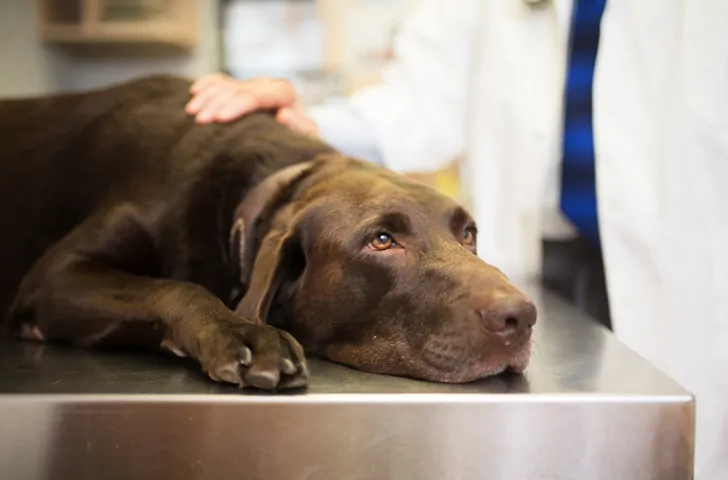The most obvious signs of digestive issues in dogs are vomiting, diarrhea, bloating, and loss of appetite.
Digestive issues in dogs may be caused by many things including foreign objects, food intolerance, inflammatory conditions, parasites and cancer.
To diagnose your dog's digestive issues, your vet will get a thorough history, perform a detailed examination, and order some laboratory, imaging, or exploratory tests.
Treatment for digestive issues in dogs targets the underlying issues in combination with supportive care.
Digestive issues are the most common reasons dogs end up at the vet's office. Digestive issues in dogs vary in severity, frequency, and cause.
Your dog must have a healthy digestive system to use food nutrients to create new tissue, repair existing tissues, and produce energy. It's critical to detect the symptoms of GI issues and speak with your veterinarian because they can cause dehydration, acid-base and electrolyte imbalances, and malnutrition.

Gastrointestinal (GI) disorders and diseases that affect a dog's stomach and intestines cause pain and other issues for your beloved pet. A digestive disorder is any condition that affects how food is absorbed, digested, or moves through the digestive tract. The most common signs of digestive issues in dogs are:
Digestive issues can cause a lot of pain that your dog can't express. If your dog has a hard time getting comfortable, is sitting in a tensed or hunched posture, or bows frequently with paws and chest on the floor and hindquarters raised in the air, they may be experiencing digestive issues.
Take your dog to the vet if your dog's digestive issues last longer than 48-72 hours. Emergency vet care may be required if your pet's condition deteriorates rapidly as can happen with serious digestive illness. Blood in your dog's vomit or diarrhea, lethargy, fever, obvious signs of pain, and bloating or distention of your dog's belly are signs that indicate your dog needs urgent care.
There are literally hundreds of potential causes for digestive issues in dogs. Digestive issues can present suddenly or develop gradually. Some of the most common causes of digestive issues in dogs include:
Your veterinarian will thoroughly investigate the cause of your dog's digestive issues. This includes asking questions about anything your dog may have been exposed to and requesting a detailed description of their symptoms to get an accurate history of your dog's digestive issues.
Your vet will also perform a physical examination that entails palpating the belly for indications of anomalies, as well as assessing your dog's temperature, pulse, heart rate, lungs, level of hydration, gland/lymph node activity, and other things. This helps to plan which diagnostic tests to use and provides important information about the health of a dog.
Laboratory testing reveals information about what is happening inside your dog's body. Based on the information you provide for your dog's health history and the observations of your vet during the physical exam, your vet may order diagnostic procedures such as:
Except in urgent care cases, your vet will likely order the most basic tests first and only move towards more invasive testing procedures if your dog is not responding well to initial treatment.
Treatment for digestive issues in dogs targets the underlying issues involved. A dog with intestinal parasites, for instance, would be treated with a dewormer, whereas a dog with an obstruction would need surgery. To put it another way, the type of treatment depends on what's causing the intestinal issue.
Supportive care is required as well. Anything that is done to reduce symptoms and complications, such as dehydration from vomiting, while making your dog feel more comfortable is considered supportive care. Supportive care treatments include medications for nausea, gas, and diarrhea as well as probiotics, plain foods, and fluid therapy.
If your pup is otherwise healthy and is keeping food and water down but has started showing mild signs of digestive distress, it is usually fine to observe them for a couple of days and try a few simple home remedies including:
This method is not safe for puppies, older dogs, and small breeds because they cannot tolerate calorie restriction.
Most serious conditions that cause digestive issues in dogs can not be prevented. However, the most common causes of GI distress in dogs can be prevented by following these tips:
Dogs experience digestive problems, and most will experience at least a few episodes of an upset stomach during the course of their lifetime. You can keep your furry friend as healthy as possible by taking precautions and getting your dog to a veterinarian right away if they aren't feeling well.
Phone: (855) 461-8259
Email: [email protected]